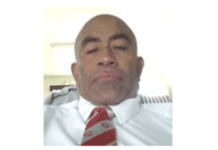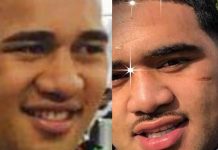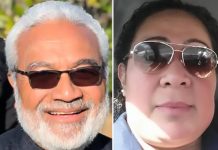With one day to go before the campaign for the premiership election closes, one fact is becoming clear – the next Prime Minister for Tonga may not be the man the late ‘Akilisi Pōhiva wanted.
Police Minister Māteni Tapueluelu told Kaniva news this afternoon the Democrats did not currently have the numbers.
He blamed infighting among Democrats for the situation.
The Democrats are split, with some PTOA members not wanting Deputy Prime Minister Sēmisi Sika to become the next Prime Minister..
There are fears the PTOA will not be able to win the premiership election as it did when they successfully voted for late Prime Minister ‘Akilisi Pōhiva in 2015.
“The simple fact is we no longer have the majority as we speak,” the Minister of Police Hon Tapueluelu told Kaniva news this afternoon.
“There is a huge squabble for power within PTOA based on the few who challenged ‘Akilisi Pōhiva’s own pick for PM,” Hon. Tapueluelu said.
Hon. Tapueluelu said it was the wish of late Prime Minister and Democratic campaigner Hon Pōhiva before he died for the PTOA MPs and cabinet ministers to support Hon. Sika to become the next new Prime Minister.
“Tonga should pray that opportunists are kept away from power,” the Police Minister said.
It is understood, the nine members of the nobility, excluding Lord Fusitu’a, as he was sick in Auckland, together with the three independent MPs, have mounted a strong campaign to woo some non-Cabinet PTOA MPs with promises of ministerial positions if they vote for another candidate.
The nobles and their allies have also been wooing some Cabinet Ministers with promises of supporting them to become Prime Minister and Deputy Prime Minister.
Only 13 MPs need to vote for a candidate to make him or her Prime Minister.
The nobles and royalist independent MPs won the premiership election in 2010 after they voted for Lord Tu’ivakanō, despite the fact there were more people’s MPs in the House than the nobility.
Five PTOA party MPs who were non-Cabinet ministers were outgoing MP Akosita Lavulavu, MP Veivosa Taka, VP Vatau Hui and MP Mo’ale Fīnau.
We say
Kaniva news believes the late PM Pōhiva was the only person who had the skill to unite the party members in the last premiership election and during the offensive snap election campaigns after the king dissolved parliament in 2017.
It is apparent that that capability is absent from many of the key party members.
However, the Democrat MPs should work urgently to resolve any differences so they can elect a Prime Minister who will honour the wish of the late Hon. Pōhiva and the majority of the democrats in Tonga.
There is no need to give the royalists an opportunity to run the government because it could hinder or reverse the great democratic reform process that have been underway since 2010.
The then king, the late George V, wanted the people to run the government.
King George relinquished his executive power, laying a stepping stone for the people’s battle to bring democracy to Tonga’s political system. His Majesty wanted a commoner to become the first Prime Minister in 2010.
But this did not happen because the majority of Parliament eventually chose a noble to become the prime minister.
New Zealand scholar Christine Bogle said in her doctoral thesis Democratisation in Asia-Pacific monarchies that the king was disappointed when a noble was elected in 2010, rather than a commoner.
The late king’s vision for a fully democratized executive government for Tonga was hindered by some constitutional issues that could have been – and could still be – easily fixed.
This included the constitutional clause which allows members of the nobility to run for the premiership when they were only elected to parliament by their 33 colleagues and not the people.
This clause of the constitution remains a threat to the hopes of the democrats who have represented the majority of Tongan voters who supported the democratic reforms. .
Although the majority of the House is dominated by the 17 people’s MPs, while the Nobles only have nine seat, there was no guarantee that all 17 people’s representatives elected to Parliament will all be Democrats.
Some of them were royalists and this means the nobility, despite their minority standing in the House, will always look for these royal supporters to make up their numbers so they can outvote the Democrats in the election of the Prime Minister.
This system is unfair and needs to be changed.
These problems could be resolved by changing the constitution to disallow the nobility from running for premiership because they were not elected by the people.
Legalising the party system in Tonga would mean voters would understand where party members stand and what policies they support before they go to the polls. This would allow supporters on both sides to know which party to support.
Such a change to the constitution would also give the party the power to make sure their members were loyal to their charter, policies and guideline. It would also provide a framework in which a member of party could be removed immediately if they breached their charter or crossed the floor.







